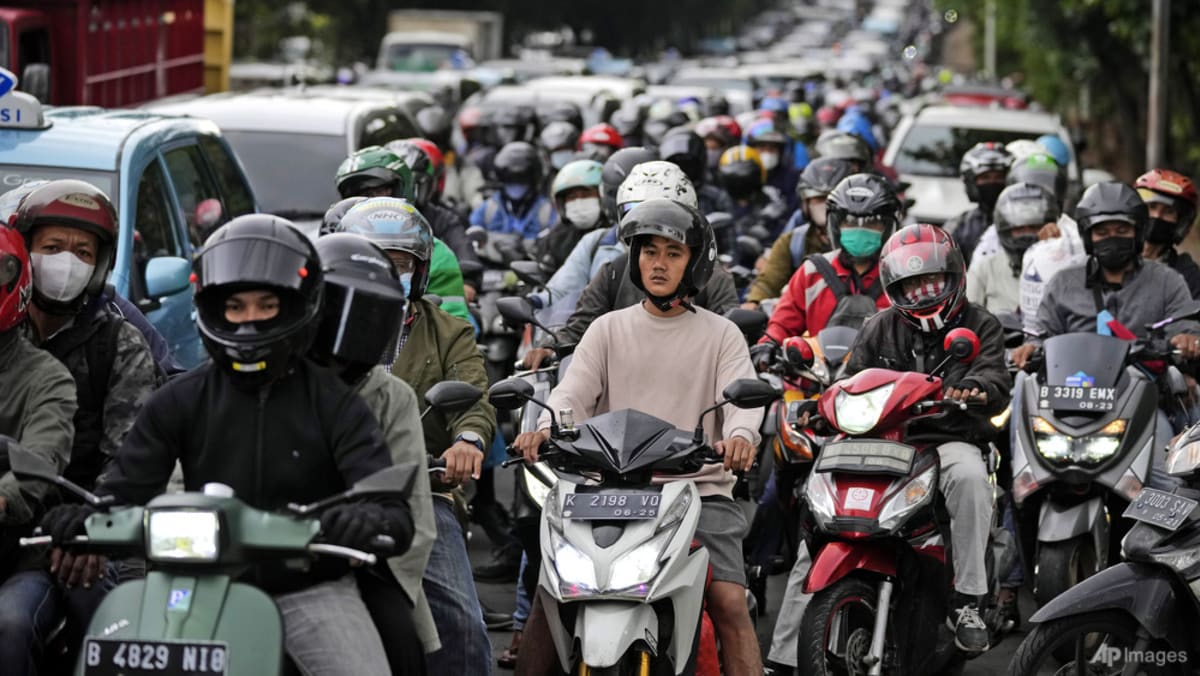JAKARTA: Zainal Ridho, 41, owns a car rental company in Banjarmasin, South Kalimantan.
Previously, the day rate for his Toyota Innova, including the price of subsidised Pertalite fuel, was 800,000 rupiah (US$54).
Last week, he raised the price to 900,000 rupiah per day, amid the widespread belief that the government would soon increase the price of subsidised fuel.
“I must explain to the customers why I have adjusted the rental price,” he said. While he still has loyal customers, some of them try to negotiate a better deal to get a lower price, he said.
Additionally, his 20 employees have also requested a salary increase as their expenses have been going up.
Last weekend, the government announced that it will raise subsidised fuel prices by about 30 per cent amid rising global prices.
The price of subsidised diesel rose from 5,150 rupiah per litre to 6,800 rupiah. Subsidised gasoline now costs 10,000 rupiah per litre, up from 7,650 rupiah previously.
The move is necessary to curb spending on ballooning energy subsidies, said President Joko Widodo last Saturday (Sep 3).
He said that the budget for energy subsidies nationally has swollen to 502.4 trillion rupiah, from the initial 152.5 trillion rupiah budgeted last year.
The government anticipates the fuel price hike to drive up inflation to about 6.6 per cent from 4.69 per cent currently.
Besides raising the price of diesel and 90-octane gasoline, known locally as Pertalite, the government also increased the price of 92-octane gasoline.
Called Pertamax, it went from 12,500 rupiah per litre to 14,500 rupiah per litre. Pertamax is usually used by car owners with newer and bigger engines.
The fuel price hike came into effect an hour after the president’s announcement.
To soften the blow, the government said that it will disburse direct cash transfers to about 20 million poor households.
“We will distribute 150,000 rupiah per month starting from September for four months to 20.65 million underprivileged families,” said Mr Widodo during the televised announcement.
Despite these measures, there were sporadic protests in several Indonesian cities this week.
In Jakarta, thousands of people rallied against the price hike. Similar protests were also held in other cities such as Surabaya, Makassar and Kendari.
On the back of the fuel hike, the transport ministry said on Wednesday that fares for app-based motorbike taxis, a popular mode of daily transport, will also go up.
Fares per kilometer will increase by between 6 per cent to 13.3 per, effective from this weekend.
As a lower-middle-income economy with a gross national income per capita of US$4,140 last year, Indonesia’s economy is dependent on its micro, small and medium enterprises (MSMEs).
About 98 per cent of these are micro-enterprises that are sensitive to even minor economic policy shifts.
While it is still early days to see the full impact of the fuel price hike, enterprises across Indonesia are already bracing themselves for how it would hit them in the long run.
